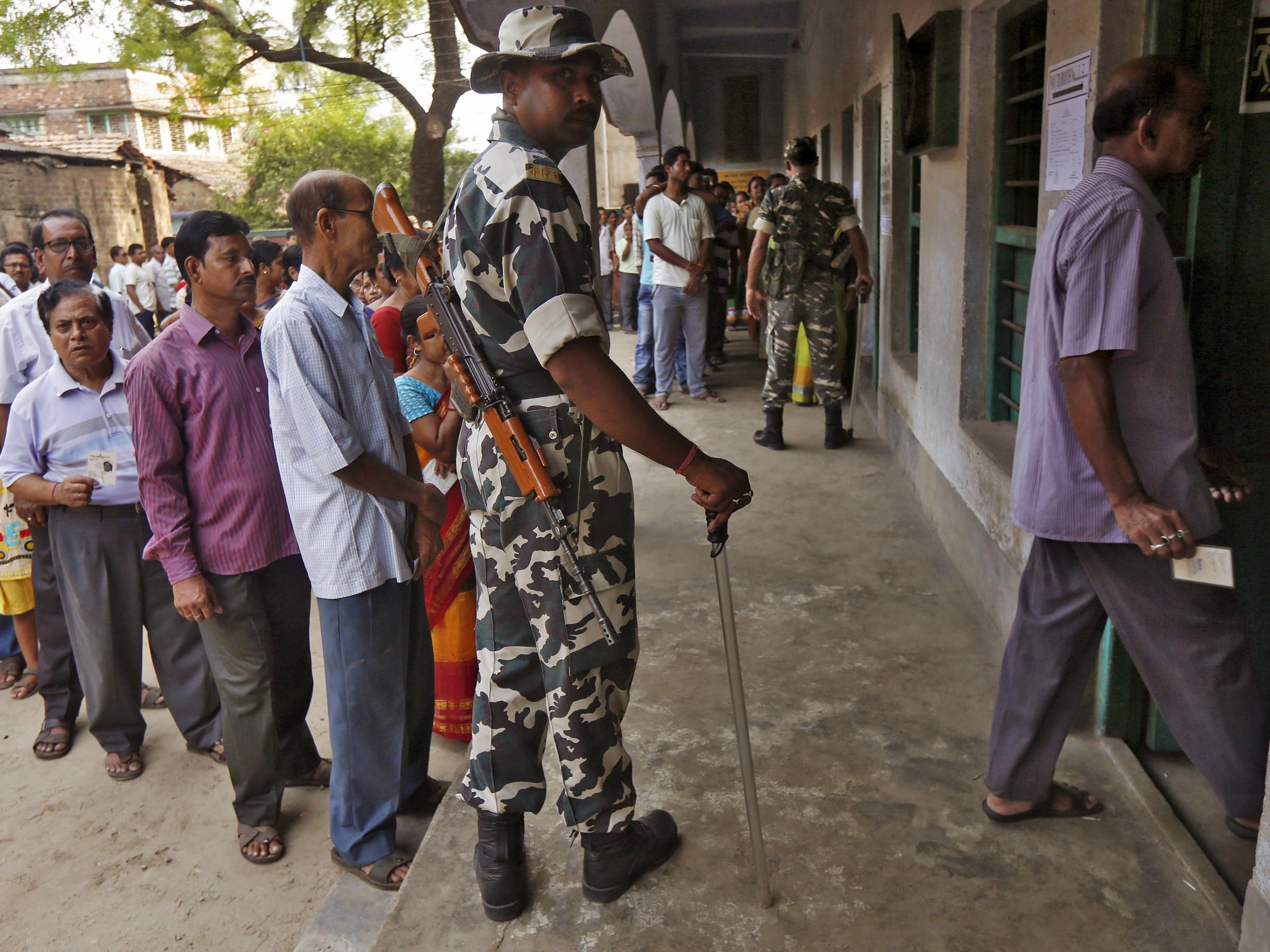Indian Supreme Court orders politicians to stop using religion and caste to gain votes
Parties seek to polarise electorate of different faiths

Your support helps us to tell the story
From reproductive rights to climate change to Big Tech, The Independent is on the ground when the story is developing. Whether it's investigating the financials of Elon Musk's pro-Trump PAC or producing our latest documentary, 'The A Word', which shines a light on the American women fighting for reproductive rights, we know how important it is to parse out the facts from the messaging.
At such a critical moment in US history, we need reporters on the ground. Your donation allows us to keep sending journalists to speak to both sides of the story.
The Independent is trusted by Americans across the entire political spectrum. And unlike many other quality news outlets, we choose not to lock Americans out of our reporting and analysis with paywalls. We believe quality journalism should be available to everyone, paid for by those who can afford it.
Your support makes all the difference.A landmark ruling by India’s highest court has banned the use of religion and caste by politicians seeking votes.
The judgement, which could radically alter the country's political landscape, comes just weeks ahead of assembly elections in five states.
Polls have shown that faith and caste carry great influence at the polls.
“Religion has no role in electoral process, which is a secular activity,” a bench of seven judges at The Supreme Court concluded in their ruling.
They added that using religion or a hierarchical group to garner ballots was tantamount to electoral corruption.
In a split decision, the court said the relationship between man and God was an individual choice and that the state should not interfere.
“No politician can seek vote in the name of caste, creed or religion,” said Chief Justice TS Thakur said in the order, adding that election process must be a “secular exercise”.
The panel was divided by four votes to three, with the dissenting judges saying the winning verdict was an overreach by the court.
The justices who disagreed argued it should be left to parliament to decide.
They said that “discussion on caste, creed and religion is constitutionally protected within and outside elections and this cannot be restricted”.
Although India is officially secular, political parties have long sought to gather votes along lines of religion and social status.
Prime Minister Narendra Modi’s ruling Bharatiya Janata Party (BJP) has long sought to win votes on a Hindu nationalist platform.
BJP politicians have been accused in the past of spouting Islamophobic statements in order to divide the electorate.
The court’s ruling came after years of petitions for changes to the country’s campaigning practices.
The judgement has nonetheless received heavy criticism.
Kancha Ilaiah, a political scientist based in Hyderabad, said the inclusion of caste in the judgement was “unfortunate”, since it would prevent the views of those in lower castes being implemented in policy.
India’s caste system is among the world's oldest forms of surviving social stratification.
The system which divides Hindus into rigid hierarchical groups based on their karma (work) and dharma (the Hindi word for religion, although it is generally taken to mean duty).
Generally accepted to be more than 3,000 years old, it divides them into four main categories - Brahmins, Kshatriyas, Vaishyas and the Shudras.
Many believe that these groups originated from Brahma, the Hindu God of creation.
At the top of the hierarchy were the Brahmins who were mainly teachers and intellectuals and are believed to have come from Brahma’s head.
They were followed by the Kshatriyas, or the warriors and rulers, supposedly from his arms. The third rank went to the Vaishyas, or the traders, who were created from his thighs while at the bottom of the pile were the Shudras, who came from Brahma’s feet and did all the menial jobs.
The main castes were further divided into about 3,000 castes and 25,000 sub-castes, each based on their specific occupation.
Outside of this Hindu caste system were the Achhoots - the Dalits or the untouchables.
Mr Ilaiah, who belongs to the Dalit community, told Al Jazeera: “The Supreme Court now says we cannot use the caste issue for our liberation, for our equality.
“If they say that, then how do we achieve our liberation? What about the right to speak about my oppression?”
“It is as if the Supreme Court has said [our repression] cannot be used as an instrument to fight back,” he added.
But Ashok Malik, a fellow at Delhi-based think-tank The Observer Research Foundation told The Guardian the ruling would have little effect because it was too difficult to implement.
“Identity is intrinsic to human society and there is political mobilisation all over the world that takes place along these lines,” he said.
“You can’t ban identity […] A sweeping ban on the use of identity for political mobilisation is going to be unimplementable.”
Join our commenting forum
Join thought-provoking conversations, follow other Independent readers and see their replies
Comments